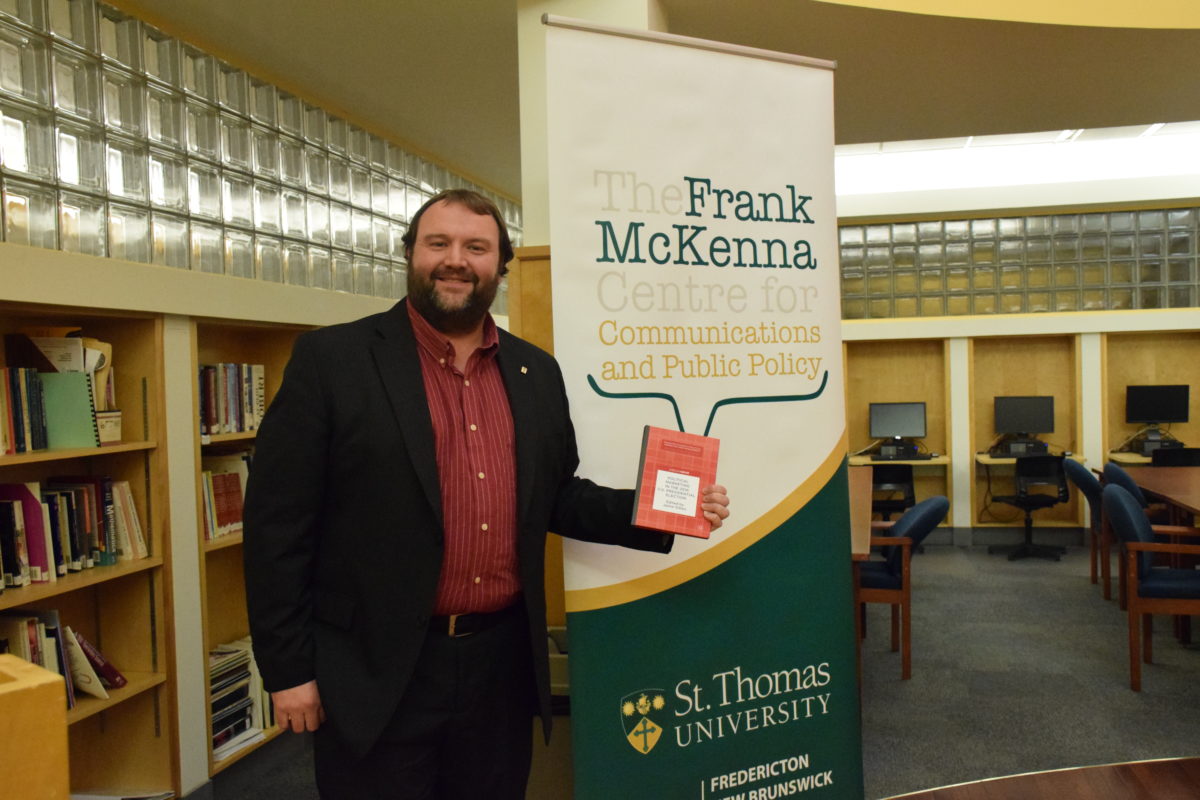
Most people didn’t think Donald Trump would win the 2016 United States presidential election when he ran, but communications and public policy professor Jamie Gillies predicted the outcome.
Now Gillies is publishing his book, Political Marketing in the 2016 Presidential Election, in which he and his co-authors discuss the lead up to Trump’s win and examine why and how Trump did it.
“When I sat down to develop the book proposal back in January 2016, I made a calculated assumption. All things being equal, and long before the craziness of the national election campaign, in a head-to-head contest with Hillary Clinton, Donald Trump would win the presidency,” Gillies said at his book launch on Oct. 22.
Gillies went on to talk about the eight important points of the book, including that he made that assumption because, historically, few American political parties have been able to win three consecutive terms in office. George Bush Sr. is the only one to be able to do it.
Gillies also mentioned that one of his co-authors, Brian Connelly, did some research and found out Trump paid to do focus groups in swing-voter states to discuss exactly what people wanted, basing his campaign off the responses.
He also said that Trump developed a campaign similar to that of Richard Nixon and Ronald Regan when he re-branded the Republican Party. The personalization of candidates and a connection to voters through the use of social media happened at the expense of the branding of political parties, Gillies said, but it worked.
Gillies also discussed how Trump and Clinton ran two very different political campaigns, adding that Trump could say anything and Clinton wouldn’t call him out on it.
“This was not an ordinary election,” Gillies said.
He said one of the major points of the book was how Clinton lost the minute she decided not to balance the ticket with Bernie Sanders.
Academics didn’t call the election properly, Gillies said, even though there were always tell-tale signs it would end the way it did.
Gillies book can be bought at the University of New Brunswick book store. Shaun Narine, chair of STU’s Political Science department, encouraged people to delve into it.
“Jamie’s book is an excellent and necessary first step in understanding the mechanisms of a shift in the political wins.”
